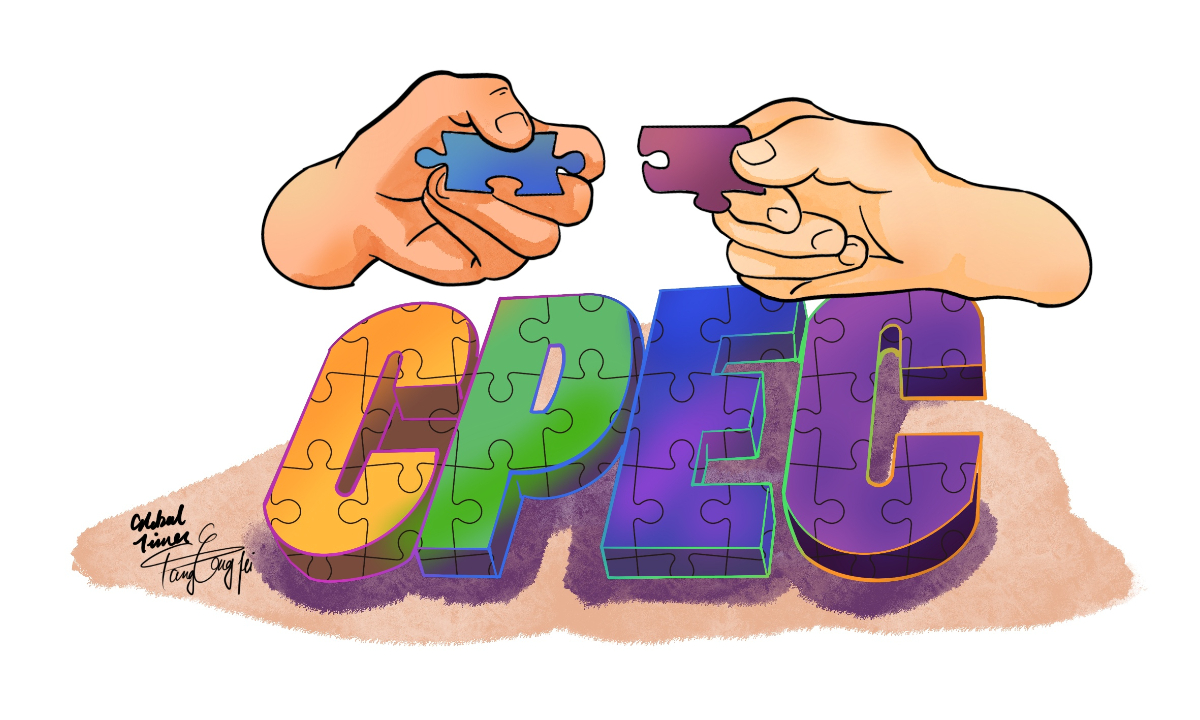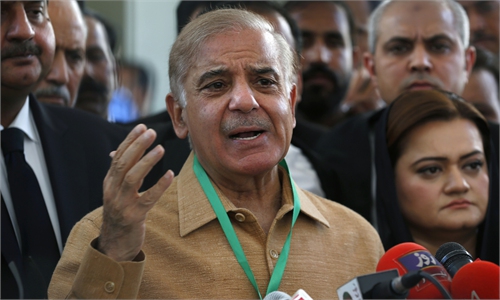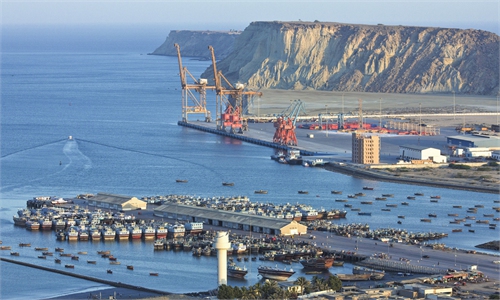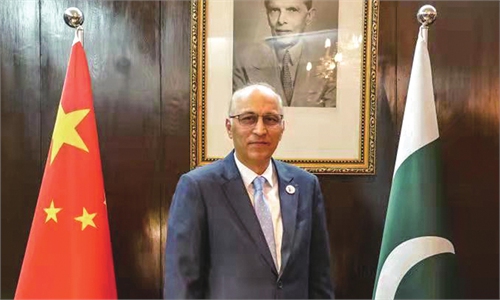
Illustration: Tang Tengfei/Global Times
Economic headwinds in Pakistan have aroused concerns over whether the China-Pakistan Economic Corridor (CPEC) project will be affected. It is neither the first time, and unlikely to be the last time that Western media outlets slander the CPEC. Some media may try to claim that a bad enough economic downturn could lead to a collapse of the CPEC, but those people are going to be deeply disappointed.
Some media outlets are keen on playing up tensions by saying Pakistan faces a "double whammy" from weak economy and growing debt levels. Bloomberg reported Wednesday that Pakistan may default for the second time in its history if the country cannot get a bailout from the IMF.
In the backdrop of the current economic situation, "Islamabad will for the next couple of years lack the resources to accelerate work on the CPEC," the South China Morning Post (SCMP) said recently, citing unnamed analysts.
Some people believe China and Pakistan may scale down the CPEC amid Pakistan's increasing debt problems because they mistakenly think the project has inflicted a rising debt burden on Pakistan. However, official data showed the debt incurred from the projects of the CPEC is only one-tenth of Pakistan's total foreign debt.
It is ridiculous to blame the CPEC for the current economic difficulties and challenges Pakistan is facing. With investment in road, railways and ports, the CPEC offers enormous potential for the South Asian country to boost its economy, reduce poverty and promote regional economic cooperation.
Currently, Pakistan seems to have a bigger problem to worry about as the country grapples with surging inflation. The annual inflation rate in Pakistan increased to 13.4 percent in April from 12.7 percent in the previous month.
High inflation is the result of multiple factors, among them the West's unilateral sanctions on Russia which have driven up the cost of energy and agricultural goods are one of the most important ones. A contrast between the impact of West's unilateral sanctions and the CPEC on Pakistan's economy give a hint to answer the question that who should take blame for Pakistan's economic woes.
Like some other developing countries, Pakistan has been facing economic headwinds. The South Asian country now needs to work hand-in-hand with China to safeguard the smooth implementation of the CPEC, a project that can make a contribution to help Pakistan get through the current tough period.
Pakistani Prime Minister Shahbaz Sharif said on May 16 that Pakistan is ready to work with China to speed up the construction of the CPEC, deepen cooperation on key projects and special economic zones to bring more benefits to the people of the two countries.
The CPEC has been a flagship project of the Belt and Road Initiative (BRI) and benefits local people through the improvement of local infrastructure. China will never leave the CPEC project unfinished. No matter what difficulties we encounter, we should be confident in the future of our two countries' closer cooperation.
The author is a reporter with the Global Times. bizopinion@globaltimes.com.cn



